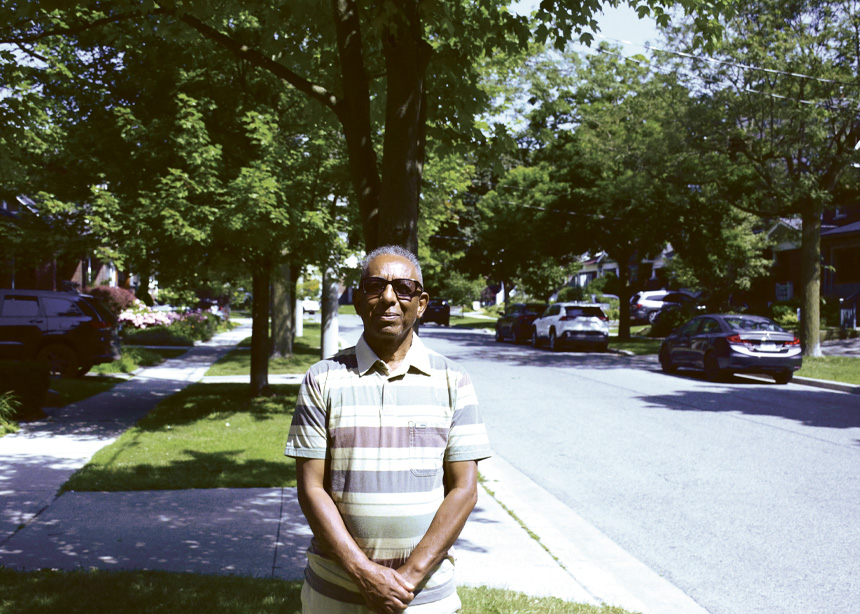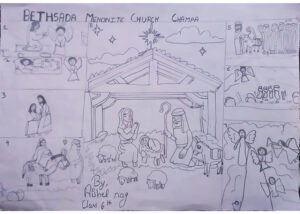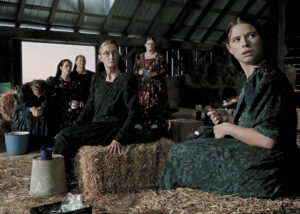When I was five years old, two forces shook my world to its core. Before this, I had a loving family, a good school and a beautiful country. But that year, 1960, thousands of Ethiopian troops invaded my country of Eritrea. A dark cloud of fear hung over the land and the people. People spoke in hushed tones, afraid of being overheard by spies or enemies. I started to think this was the end of the world.
What broke my heart, during that chaos, was the death of my father. The agonizing cry of my mother over my father’s coffin pierced my soul.
I owe my survival to the Capuchin Friars at St. Anthony Elementary School in Asmara, Eritrea, who had taught me before this time. They were strict, kind and diligent in teaching the fear of God and love of Christ through daily Bible classes and church attendance. What I learned through them was engraved in my heart and my mind. It was enough to sustain me through years of hardship and chaos that followed.
After my father’s death, my eldest sister decided I should go and live with her in the village where her husband had started a new school. Numb to everything, I did not resist, believing it would be a relief for my widowed mother to have one less mouth to feed.
My sister lived in a remote village located on a high mountain plateau, almost 2500 metres above sea level. Travel there was only possible by foot or mule. I had been a city boy, but now I suddenly became a mountain boy.
While living with my sister, I stumbled upon three books that belonged to my brother-in-law: Robinson Crusoe, The Adventures of Tom Sawyer and Pilgrim’s Progress. I believe these books were there by the loving intervention of the almighty God, who saw my loneliness and sorrow. The characters in these books had to endure hardships similar to mine, and I found solace in their stories. I learned I was not the only one suffering and that God was always with me.
The villagers were kind and gentle people who spoke little. They felt sorry for me because they knew I was an orphan. They didn’t know that I felt pity for them too. Though everything in that village was blessed, the villagers were too busy to enjoy the beauty of the land. I had it to myself. I enjoyed the beautiful lizards that waggled their tails and bowed their heads in greeting, and the ample fruits on the trees.
My lonely wanderings in and around the village made me a pain-feeler, easily moved by any tears. The most haunting sounds were the screams of young girls in their first childbirth. The village women would wail, praying to God for mercy, their melodious despair echoing from hills and valleys. Then, a miracle would happen, and I would hear joyful ululations from the same women.
I hadn’t even known my sister was pregnant when she went into labour. For three days and nights, I heard her agony while the village women wailed. I gave up hope of her survival, but she gave birth to a beautiful baby girl who she named Bisirat, which means “good news.”
Two illnesses struck me during the first weeks of living in the village. I was left for dead by migraines more than a thousand times, and every time I had a migraine that lasted for hours, I would wake up feeling reborn. The joy I felt was like touching heaven.
I was also tormented by intense stomach pain. I fought it with self-talk and prayers. It was later diagnosed as a chronic duodenal ulcer.
This pain continued as I grew up. I quit many good jobs because I couldn’t stand the pain. Doctors tried everything to help me, but nothing worked.
The next part of my story is one of deliverance. It is like those in the Bible, so I tell it in that way.
And it came to pass, after many years of wandering and wasting, that the Lord sent me a nomadic messenger with a word in the year of our Lord 1988. For those days were evil for me, and my health was failing due to the wicked duodenum ulcer, and I was fleeing from my Father, Saviour and Comforter.
And there came unto me a nomad friend from the days of my youth, who had journeyed to Toronto, and he abided with us for three days. And on the first day of the week, when we had broken bread, he asked me of my purpose for the day, and I answered him that I had none. And he looked upon me with a stern countenance, and he charged me to seek a church and to go there speedily for my wife and children’s sake. And he commended unto me a Mennonite church, for reasons I know not. And I said unto him, “yea,” as a nomad who trusts only another nomad, and he departed from us on the morrow.
And I was constrained and hastened to search for a Mennonite church, and on the fourth day I found one: Toronto United Mennonite Church (TUMC). And I called them straightaway, and an angel said unto me, “Hello, how may I help you?”
And the angel told me that I was welcome to come to the church. And I told the good tidings to my wife and two daughters, and they showed an uncommon zeal. And when the day came, we went to TUMC. And at the entrance we were greeted by more angels, and our fears and our shyness melted away.
The name of my friend is Asmerom, which means “the one who makes straight the way.” And verily I followed the way and was embraced, honoured, loved after a long life of waywardness, wastefulness, dangers and sinfulness. I had never been forgotten or forsaken by the Almighty God.
But I was still tormented by my ulcer.
One Saturday afternoon, my wife and my children persuaded me to go to the library, hoping that reading magazines in a quiet place might alleviate my misery.
I rarely read Scientific American, but my eyes caught a headline about duodenal ulcers. I turned to the page and God showed me my cure. I went straight to a nearby walk-in clinic. When I told the doctor about my condition, he started writing a prescription. I told him I had a cupboard full of such useless medications. I also told him what I had read—that an Australian doctor had discovered such ulcers were caused by H. pylori infections, but that the treatment was not yet validated in North America.
I asked if he could prescribe it anyway.
I saw something in his face that lasted only for a second—it had eternity in it. He prescribed the medicines.
On the fourth day of taking the cocktail of medications, I felt so good. When my wife came home from work, I saw her face as though for the first time. I realized the ulcer had blinded my inner eye. Through the medications, God touched me, and I was able to see.






Leave a Reply
You must be logged in to post a comment.